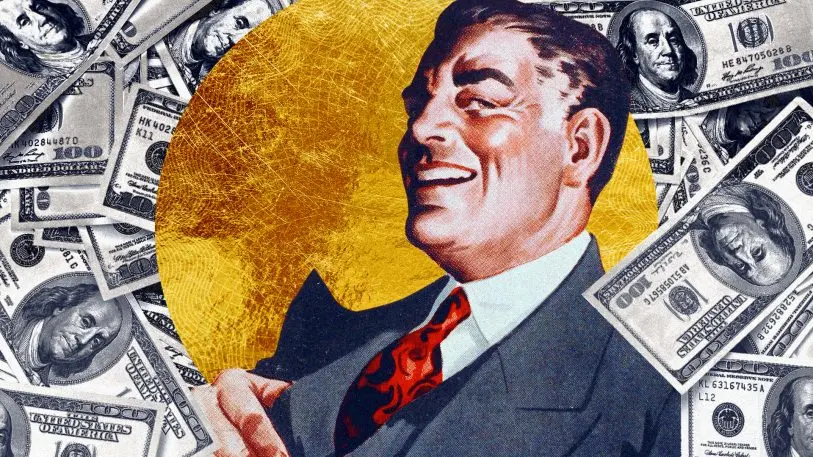In America, unless you are already wealthy, the chances of you getting rich–or even just earning enough to live securely–are slim. This year, the nonprofit think tank Economic Policy Institute found that CEO pay grew by over 17% last year, while regular worker salaries grew .3% (or, adjusted for inflation, not at all). Meanwhile, even for people with jobs, necessities like housing, healthcare, childcare, and retirement are becoming more expensive to access.

It doesn’t have to be this way: Policymakers, activists, nonprofit leaders, and researchers have simple ideas that would help working people live more comfortably. Some feel revolutionary, some are on the cusp of adoption, but all are worth considering as we try to rebuild an economy where the stock market has soared and unemployment plummeted, while people still can’t save enough to afford to pay for a medical emergency. Here are just a few concepts that could change that in the coming year and beyond.

Give a basic income to people in need
This month, the Magnolia Mother’s Trust, a pilot initiative to provide 15 black mothers in Jackson, Mississippi, with an extra $1,000 a month, distributed its first checks. The program, developed by the nonprofit Springboard to Opportunities and the Economic Security Project, which advocates for basic income, is designed to address the systemic inequities that black women of color face, which can’t be solved with just traditional employment. It’s just one of several basic income programs underway in the U.S., and more, according to the ESP co-chairs Natalie Foster, Dorian Warren, and Chris Hughes, can’t happen quickly enough. “Even with the economy nearing full employment, nearly 40% of Americans had trouble meeting their basic needs last year,” the co-chairs say in a statement to Fast Company. “This year, we advocated for providing $500 a month for the poor and middle class that was reflected in proposals put forward by several congressional leaders, including Senator Kamala Harris,” they add. “That kind of income floor would move millions out of poverty and provide much-needed economic stability to hardworking Americans.”
Help the environment and the economy
The idea of a Green New Deal, championed by representative-elect Alexandria Ocasio-Cortez, has been gaining momentum in the new Congress. The proposal calls on the government to invest in shifting the economy to 100% renewable energy, and doing so by training and hiring millions of Americans to work on clean energy projects. The Green New Deal also would provide for basic income and universal healthcare to cover people who may have to transition out of work in fossil fuel industries. The whole idea of the program is to address the country’s two most pressing concerns–climate change and inequality–in one comprehensive and mutually beneficial way.
Take a equitable approach to benefits
Around one-fifth of people in the American workforce are employed on a contract or freelance basis. Because they lack a single employer, and either manage their own employment or work through a third-party contracting agency, they often do not receive benefits like healthcare, disability leave, or paid time off. A handful of solutions this year are beginning to address this gap. SurveyMonkey became one of the first tech companies to extend benefits to people who work for them on a contract basis, such as their janitorial and cafeteria staff, and the National Domestic Workers Alliance introduced a platform, Alia, on which employers of house cleaners can pay into a mutual fund that will allow workers to secure paid time off and some insurance. While universal benefits, like healthcare (and basic income would help workers, like cleaners, who often do not earn enough to make ends meet) would be the most simple solution, these ideas at least confront the difficult economic reality for many workers, and try to make it better.

Make housing affordable to all
For many Americans, rent and housing costs far outpace the income they bring home. To Diane Yentel, president and CEO of the National Low Income Housing Coalition, legislation introduced in both the Senate and the House this year has a potential to change that. Senator Elizabeth Warren’s American Housing and Economic Mobility Act would raise the tax on estates transferred between the 10,000 wealthiest families in the country to build out a fund of $45 billion annually to create and preserve affordable housing. This fund is “the first new federal housing resource that is exclusively targeted to increase the supply of housing affordable to people with the lowest incomes who face the most severe impacts of the housing crisis,” Yentel says. Warren’s bill, introduced in September, now has companion legislation in the House.

Close the salary gap between executives and workers
Bernie Sanders’s Stop Bezos Act, which he introduced this September, called for an additional tax on large companies like Amazon, whose workers earn so little that they have to rely on government assistance to get by. While the bill itself is still in limbo, Josh Hoxie of the nonprofit think tank Institute for Policy Studies calls it “the fastest political victory in recent memory” because shortly after it was introduced, Amazon raised its minimum wage to $15 per hour. (An even faster way to increase its workers’ wages would be to let them unionize, as labor unions are one of the most effective means of securing higher wages for workers.) Another, says Lenore Palladino, senior economist and policy counsel at the Roosevelt Institute, again comes from Senator Warren: Her Accountable Capitalism Act mandates that large companies give employees a say in corporate decision making. Senators Tammy Baldwin and Cory Booker also have introduced bills that would limit stock buybacks–in which companies buy back their own shares to transfer more earnings to shareholders–and instead spread corporate wealth back to workers.

Cancel the debts
The average American holds around $38,000 in personal debt, racked up over a lifetime of being confronted with things that are necessary but difficult to afford: college, healthcare, housing. From the larger economic perspective, this is not a good situation, because when people have to devote so many resources toward paying off debt, they can’t contribute to the rest of the economy. Debt is a centuries-old phenomenon, argues the economist Michael Hudson, but in ancient civilizations, people could at least count on it eventually being forgiven. In his new book, . . . And Forgive Them Their Debts: Lending, Foreclosure, and Redemption–From Bronze Age Finance to the Jubilee Year, Hudson describes how civilizations like Babylonia would implement Jubilee Years to forgive personal debts. “The reason was quite clear: If rulers didn’t cancel the debts, the people owning money would fall into bondage to rulers or to wealthy people, and they wouldn’t be able to pay their taxes and fees for basic services, and the whole country would fall into disarray.” Debt cancellation, Hudson says, kept ancient economies viable, and it’s an idea now that’s coming back into vogue. Around 20 House Democrats have signed a bill to eliminate student loan debt.
Tax financial transactions
In addition to the estate tax that Warren wants to raise on property and money transferred in between rich families, economist Lily Batchelder (who’s also championed the idea of an estate tax), also maintains that a .1% tax on the value of each Wall Street financial securities trade could raise a significant amount of revenue–around $777 billion over the next 10 years.
Recognize your brand’s excellence by applying to this year’s Brands That Matter Awards before the early-rate deadline, May 3.
